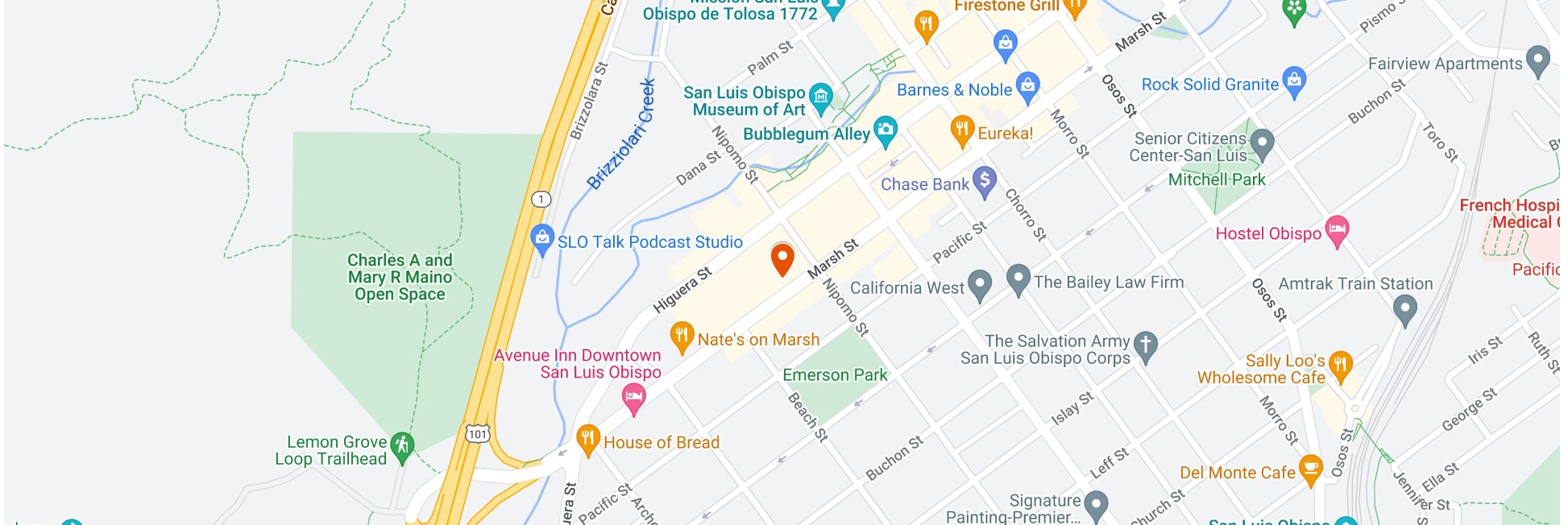California PC 192(c) considers vehicular manslaughter a crime that occurs when you operate a vehicle negligently and unlawfully, resulting in the death of an individual. Vehicular manslaughter crimes are particular to deaths caused while operating a vehicle, unlike voluntary or involuntary manslaughter, which does not have to involve vehicles.
Possible penalties for vehicular manslaughter could be severe. Your punishment depends on the seriousness and nature of the offense. Also, your punishment depends on your negligence level. For example, whether you were drunk during the offense and the details of your criminal history before you committed the crime.
The unlawful acts committed during the vehicular manslaughter commission do not amount to you committing a felony, as this would be classified in another category as a crime under Penal code 187. The offense will be ruled out as murder instead.
If you or a family member are charged with vehicular manslaughter, you want to seek the services of an experienced attorney. Your preference must have helped defendants accused of PC 192(c) violations achieve positive outcomes in their cases. The penalties are severe, and seeking services from experienced lawyers will ensure that you avoid most, if not all, consequences of your offense.
At San Luis Obispo DUI Attorneys, we have lawyers ready to serve you and develop solid defenses that will see your charges dismissed or reduced. Contact us today so that we can help you avoid the adverse consequences that could result if you are convicted of a Penal Code 192(c) violation.
California Vehicular Manslaughter Overview
In California, vehicular manslaughter is considered a homicide crime that primarily involves the victim's death by a vehicle. Under PC 192(c), you can only face a vehicular manslaughter charge if the prosecution proves that you were operating the vehicle negligently or committed unlawful acts while driving.
The prosecutor bears the burden to show that you were negligent while driving. Some of the elements that the prosecuting agency must establish that you are guilty of California PC 192(c) violation include the following:
- Your actions resulted in the death of a person.
- You committed a misdemeanor or legal act unlawfully.
- The legal act, misdemeanor, or offense posed a danger to the victim or resulted in another victim’s death.
- You engaged in a lawful act, misdemeanor, or infraction with ordinary or gross negligence.
According to California law, the following are the categories of vehicular manslaughter offenses that you could face charges for:
- Misdemeanor vehicular manslaughter.
- Vehicular manslaughter with gross neglect.
- Vehicular manslaughter for financial profiting.
- Vehicular manslaughter offense while you are intoxicated.
Vehicular Manslaughter With Gross Neglect
According to PC 192(c)(1), you could face charges for vehicular manslaughter with gross neglect offenses. Contrary to ordinary negligence, which you are only guilty of if you acted carelessly or inattentively, you could be convicted of gross negligence in consideration of vehicular manslaughter if your actions were intentionally reckless and disregarded the safety of other people's lives.
Gross negligence is pivotal to causing great bodily harm to the victim. Therefore, the penalties are more severe as you should be aware of the risk involved in intentionally being reckless while driving.
The prosecuting agency must prove some of the elements before you could face gross negligence vehicular manslaughter charge using the following:
- Your actions point out that you acted with gross negligence.
- Your actions in that circumstance resulted in someone else’s death. For the prosecutor to accuse you, in this case, death should be natural, direct, and caused by your actions. However, if your efforts in that circumstance were not intentional toward causing another person’s death, then you will not be found guilty.
- Your actions while driving posed harm to people.
- While driving, you committed a misdemeanor or legal act that could result in someone else’s death, given the current circumstances.
According to PC 192(c)(1), the only crimes you could be accused of are misdemeanors, not felonies. If you caused another person’s death while driving, the offense is no longer categorized as vehicular manslaughter. You will be accused of the murder instead.
Vehicular Manslaughter for Financial Profiting
Under PC 192(c)(3), the prosecutor may place charges against you if it is proven that:
- You intentionally caused or took part in a crash while driving.
- You intended to illegally defraud an insurance company or an individual to gain finances.
- You intentionally proceeded with actions that resulted in a collision to bring a false insurance claim to gain finances illegally.
- The collision resulted in someone else’s death.
You could still face conviction under PC 192(C)(3) even if you accidentally caused someone else’s death while intentionally wrecking your car to defraud an auto insurance company.
Vehicular Manslaughter as a Misdemeanor Offense
Per California PC 192(c)2, an ordinary vehicular manslaughter offense is a misdemeanor offense. The following are some of the elements that the prosecution must prove to warrant before you could face conviction:
- You were engaged in actions that posed a threat to someone else under the circumstances at the time.
- You failed to take precautions or due care while operating a vehicle in foreseeable danger, thus engaging in ordinary negligence.
- You operated a vehicle and committed a misdemeanor or a legal act.
- Your actions while operating the vehicle resulted in someone else’s death.
- Your actions must be natural, probable, and direct to cause another person’s death for ordinary negligence to come out as a factor for conviction.
Possible Sentences for Vehicular Manslaughter Under PC 192(c)
A vehicular manslaughter offense is considered a serious criminal offense with potentially severe consequences. Depending on the circumstances of the case, it can carry a felony or misdemeanor charge. Below are the penalties associated with vehicular manslaughter under PC 192(c) and what you can expect if facing these charges.
Vehicular Manslaughter for Financial Winnings - Penal Code 192()(3)
The violation of PC 192(c)(3) is always considered a felony in California. If convicted of a PC 192(c)(3) violation, you could face the following penalties:
- A sentencing not exceeding four, six, or ten years in prison.
- A fine that does not exceed $10000.
You could also have your driver’s license suspended or revoked for up to 3 years from the revocation date as part of the penalties if guilty of vehicular manslaughter for financial profiting. If you operate a vehicle when your driver’s license has been suspended, you could face other charges for driving with a suspended driver’s license under VC 14601.
Misdemeanor Vehicular Manslaughter - Penal Code 192(c)(2)
If you've been charged with misdemeanor vehicular manslaughter in California, you face serious penalties. According to PC 192(c)(2), the penalties for ordinary or misdemeanor vehicular manslaughter include the following:
- Misdemeanor probation.
- A fine not exceeding $1000.
- Sentencing not exceeding a one-year jail term.
The sentence for misdemeanor vehicular manslaughter will vary depending on the facts of the case and the defendant's criminal history. In some cases, probation may be available instead of a prison sentence.
Vehicular Manslaughter With Neglect - California Penal Code 192(c)(1)
Per California law, the prosecution charges vehicular manslaughter offense with gross neglect as a wobbler, depending on your criminal history and the circumstances surrounding the offense. This suggests that you could face misdemeanor or felony charges depending on your circumstances or the nature of your crime.
If charged with a misdemeanor, you could face the following penalties if convicted:
- Misdemeanor probation.
- A fine not exceeding $1000.
- Sentencing not exceeding a one-year jail term.
If charged with felony negligence vehicular manslaughter, possible punishment is more severe. They include the following:
- A fine not exceeding $10000.
- Felony probation.
- A sentencing not exceeding 2, 4, or 6 years in prison.
You could also have your driver’s license suspended or revoked for up to 3 years from the revocation date as an additional penalty if convicted. If you operate a vehicle within the period your driver’s license will have been suspended, you could face extra charges for driving with a suspended license under VC 14601.
Vehicular Manslaughter Offense while Intoxicated - Penal Code 191.5
Vehicular manslaughter while intoxicated without gross negligence is a wobbler offense. This means you could face charges for a felony or a misdemeanor. In California, sentencing for this offense is as follows:
- A one-year jail term if the prosecution charges the crime as a misdemeanor.
- A Sixteen months, two years, or three years imprisonment if the prosecutor charges the offense as a felony.
Vehicular manslaughter while intoxicated with gross negligence is considered a felony. You could face a punishment of four, six, or ten years imprisonment if convicted.
Driver’s License Suspension
The California DMV will revoke your driver's license if found convicted of PC 192(c)(1) vehicular manslaughter offense with gross neglect or PC 192(c)(3) vehicular manslaughter for financial profiting.
Additionally, it will take at least three (3) years after the date of the revocation before you may apply to have your license reinstated. According to VC 14601, the judge will charge you additional fees for operating a vehicle while your license is suspended if you do so.
Legal Defenses to PC 192(C) Violation
California law states that penalties for violating PC 192(c) are severe and could detrimentally implicate your life. Some of the deaths that occur while one is operating a vehicle are accidental. Still, law enforcement personnel are out to ensure you face vehicular manslaughter charges, even though it is unfair to you.
Suppose you or your family members have been accused of vehicular manslaughter. In that case, you want to take the accusation seriously and team up with experienced lawyers who will help you form solid defenses. These defenses could see your sentencing reduced or done away with.
Some of the defenses that could help have a positive outcome in your case include the following:
The Victim Died of Another Circumstance Other than Your Negligence
A prosecutor bears the burden of proving that the victim died because you were negligent. Proving that you were negligent during the accident is one thing and proving that the victim died due to your negligence is another thing that is hard to prove unless there was a key witness. A legal defense attorney must come up with a defense to show that the victim died due to other factors other than your negligence while operating a vehicle.
You Did Not Act with Gross Negligence or Negligence
You are required to have quick responses while operating a vehicle, and therefore if those actions, even if intended for a good course, end up being wrong, they could result in the death of a person. Still, the actions do not necessarily mean that you acted with negligence. Your lawyer could argue that you did not act grossly negligent if you were negligent and see your sentence reduced if convicted.
You faced an Emergency, and your Actions at the Time were Reasonable
California laws offer guidelines for circumstances to act reasonably, given you are faced with an emergency. Your lawyer must prove that you acted in the best way you could during a crisis and that your actions were devoid of negligence.
For example, if you came across a stray dog on the road and swerved into traffic while trying not to knock the dog over and cause someone else’s death. You could say that your actions at that moment were not negligent in warranting your conviction of vehicular manslaughter offense.
Offenses Related to PC 192(C) Violation
Watson Murder/ Driving Under The Influence Murder
Per California law, you could face DUI/Watson murder charges if you cause someone else’s death while driving under the influence of alcohol or drugs, and the following is true:
- You have previously faced a DUI conviction.
- You had received education about driving under the influence or being given the Watson advisement before your DUI conviction.
A Watson advisement refers to a warning given to you when driving under the influence poses a risk to human life and that death that occurs while you are DUI. You could face murder charges if you cause death after receiving a Watson advisement.
Per California PC 187, you could face a Watson murder charge for violating a Watson advisement. The offense under California laws is a second-degree murder crime. The prosecution must prove the following:
- That you committed the murder intentionally by being drunk and still deciding to operate a vehicle, drug or alcohol consumption while operating a car is considered an intentional act that could impair your judgment while driving, thus causing the death of another individual.
- You acted recklessly concerning the results of your actions.
- Your actions were reckless and were a threat to human life.
Unlike First degree murder which involves an intent to kill, there is no intention to kill evidence before you could face Watson murder charges. Your actions only have to show implied malice instead; otherwise, if there is an intent to kill, the offense will be charged as first-degree murder instead.
A prosecutor may show that you acted out of implied malice if:
- You attended DUI classes after a previous DUI conviction.
- You had signed and read a Watson warning for an earlier DUI conviction.
- You had sufficient knowledge of the repercussions of driving under the influence of alcohol and drugs.
Penalties for the violation of Penal Code 187 include the following:
- Up to 15 years in prison.
- Fine, not above $10000.
- A strike in your criminal history per the three-strike law in California.
- You could also face extra penalties depending on the severity of injuries suffered by the victims.
Vehicular Manslaughter Offense While you are Intoxicated
Committing vehicular manslaughter offense while intoxicated is categorized under PC 191.5 in California. You could face criminal charges if the prosecutor proves that you were under the influence of alcohol or drugs while operating a vehicle and that your actions at the time resulted in someone else's death.
The categories of vehicular manslaughter crime while you are intoxicated include the following:
- Vehicular manslaughter offense while intoxicated with gross negligence.
- Vehicular manslaughter crime while intoxicated without gross negligence.
Vehicular manslaughter offense while driving under the influence also means committing offenses against the following laws:
- Driving under the influence, VC 23152(a).
- Driving with a Blood Alcohol Content of 0.8 or greater, VC 23152(b).
- Operating a vehicle with a Blood Alcohol Content of 0.5 or greater while you are under 21.
- Driving under the influence of alcohol and drugs, Vehicle Code 23152(f).
Find a San Luis Obispo DUI Attorney Near Me
Under California law, a violation of PC 192(c) is an offense involving reckless driving that causes the death of another person. The accident could be a result of negligence or an accident. However, you want to build strong defenses if you face charges for vehicular manslaughter, as the consequences are usually devastating.
You want to contact an experienced criminal defense lawyer to have the penalties reduced or dismissed to avoid the severe consequences if charged with vehicular manslaughter. At San Luis Obispo DUI Attorneys, we are ready to take up your case to help you achieve a favorable outcome in your case. Contact us at 805-321-1000 when you learn of your charges so that we can start working on your case.







